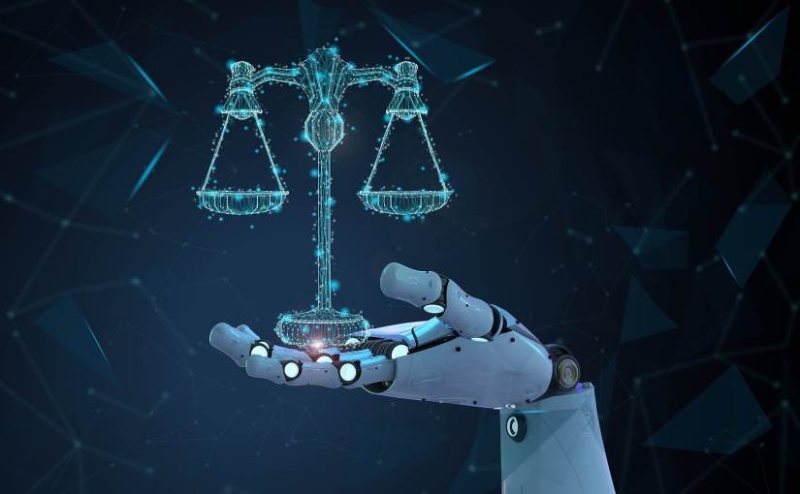
On July 29, 2024, the American Bar Association issued ABA Formal Opinion 512 titled “Generative Artificial Intelligence Tools.”
The opinion addresses the ethical considerations lawyers are required to consider when using generative AI (GenAI) tools in the practice of law.
The opinion sets forth the ethical rules to consider, including the duties of competence, confidentiality, client communication, raising only meritorious claims, candor toward the tribunal, supervisory responsibilities of others, and setting of fees.
Competence
The opinion reiterates previous ABA opinions that lawyers are required to have a reasonable understanding of the capabilities and limitations of specific technologies used, including remaining “vigilant” about the benefits and risks of the use of technology, including GenAI tools. It specifically mentions that attorneys must be aware of the risk of inaccurate output or hallucinations of GenAI tools and that independent verification is necessary when using GenAI tools. According to the opinion, users must evaluate the tool being used, analyze the output, not solely rely on the tool’s conclusions, and cannot replace their judgment with that of the tool.
Confidentiality
The opinion reminds lawyers that they are ethically required to make reasonable efforts to prevent inadvertent or unauthorized access or disclosure of client information or their representation of a client. It suggests that, before inputting data into a GenAI tool, a lawyer must evaluate not only the risk of unauthorized disclosure outside the firm, but also possible internal unauthorized disclosure in violation of an ethical wall or access controls. The opinion stressed that if client information is uploaded to a GenAI tool within the firm, the client data may be disclosed to and used by other lawyers in the firm, without the client’s consent, to benefit other clients. The client data input into the GenAI tool may be used for self-learning or teaching an algorithm that then discloses the client data without the client’s consent.
The opinion suggests that before submitting client data to a GenAI tool, lawyers must review the tool’s privacy policy, terms of use, and all contractual terms to determine how the GenAI tool will collect and use the data in the context of the ethical duty of confidentiality with clients.
Further, the opinion suggests that if lawyers intend to use GenAI tools to provide legal services to clients, lawyers are required to obtain informed client consent before using the tool. The lawyer is required to inform the client of the use of the GenAI tool, the risk of use of the tool and then obtain the client’s informed consent prior to use. Importantly, the opinion states that “general, boiler-plate provisions [in an] engagement letter” are not sufficient” to meet this requirement.
Communication
With regard to lawyers’ duty to effectively communicate information that is in the best interest of their client, the opinion notes that—depending on the circumstances—it may be in the best interest of the client to disclose the use of GenAI tools, particularly if the use will affect the fee charged to the client, or the output of the GenAI tool will influence a significant decision in the representation of the client. This communication can be included in the engagement letter, though it may be appropriate to communicate directly with the client before including it in the engagement letter.
Meritorious Claims + Candor Toward Tribunal
Lawyers are officers of the court and have an ethical obligation to put forth meritorious claims and to be candid with the tribunal before which such claims are presented. In the context of the use of GenAI tools, as stated above, there is a risk that without appropriate evaluation and supervision (including the use of independent professional judgment), the output of a GenAI tool can sometimes be erroneous or considered a “hallucination.” Therefore, to reiterate the ethical duty of competence, lawyers are advised to independently evaluate any output provided by a GenAI tool.
In addition, some courts require that attorneys disclose whether GenAI tools have been used in court filings. It is important to research and follow local court rules and practices regarding disclosure of the use of GenAI tools before submitting filings.
Supervisory Responsibilities
Consistent with other ABA Opinions relevant to the use of technology, the opinion stresses that managerial responsibilities include providing clear policies to lawyers, non-lawyers, and staff about the use of GenAI in the practice of law. I think this is one of the most important messages of the opinion. Firms and law practices are required to develop and implement a GenAI governance program, evaluate the risk and benefit of the use of a GenAI tool, educate all individuals in the firm on the policies and guardrails put in place to use such tools, and supervise their use. This is a clear message that lawyers and law firms need to evaluate the use of GenAI tools and start working on developing and implementing their own AI governance program for all internal users.
Fees
The key takeaway of the fees section of Opinion 512 is that a lawyer can’t bill a client to learn how to use a GenAI tool. Consistent with other opinions relating to fees, only extraordinary costs associated with the use of GenAI tools are permitted to be billed to the client, with the client’s knowledge and consent. In addition, the opinion points out that any efficiencies gained by the use of GenAI tools, with the client’s consent, should benefit the client through reduced fees.
Conclusion
Although consistent with other ABA opinions related to the use of technology, an understanding of ABA Opinion 512 is important as GenAI tools become more ubiquitous. It is clear that there will be additional opinions related to the use of GenAI tools from the ABA as well as state bar associations and that it is a topic of interest in the context of adherence with ethical obligations. A clear message from Opinion 512 is that now is a good time to consider developing an AI governance program.
Copyright © 2024 Robinson & Cole LLP. All rights reserved. by: Linn F. Freedman of Robinson & Cole LLP For more news on ABA Opinions on AI, visit the NLR Communications Media Internet section.





